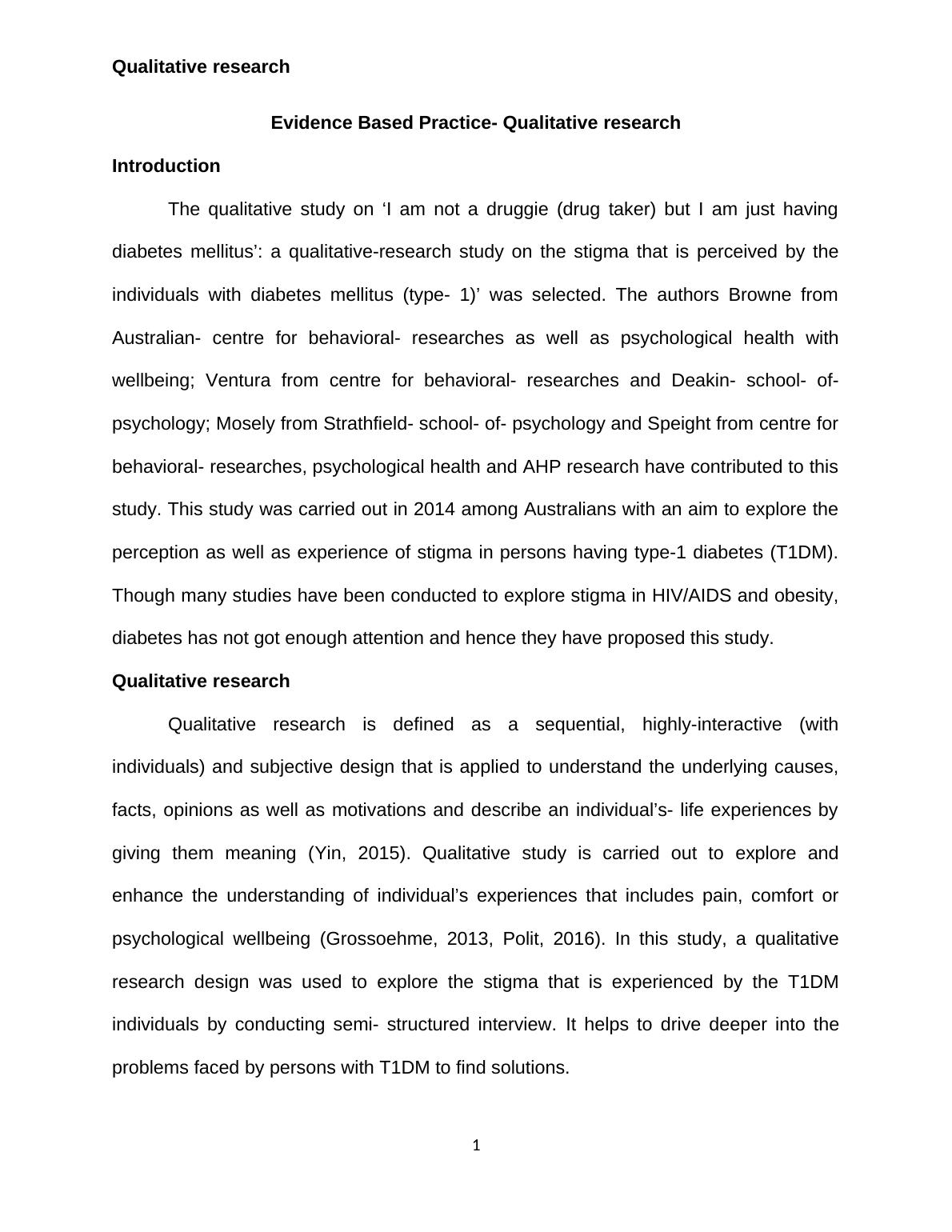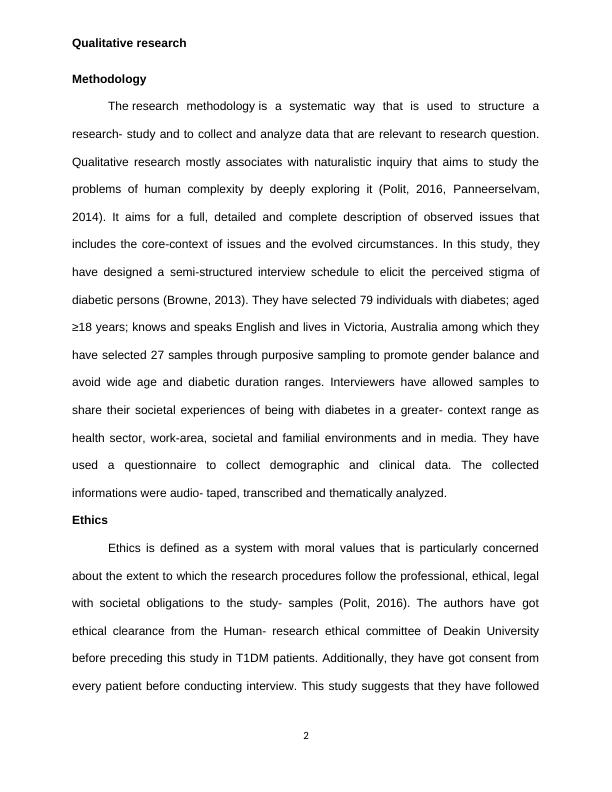Qualitative Research Evidence based practice
Added on 2020-02-24
4 Pages974 Words66 Views
Qualitative researchEvidence Based Practice- Qualitative researchIntroduction The qualitative study on ‘I am not a druggie (drug taker) but I am just havingdiabetes mellitus’: a qualitative-research study on the stigma that is perceived by theindividuals with diabetes mellitus (type- 1)’ was selected. The authors Browne fromAustralian- centre for behavioral- researches as well as psychological health withwellbeing; Ventura from centre for behavioral- researches and Deakin- school- of-psychology; Mosely from Strathfield- school- of- psychology and Speight from centre forbehavioral- researches, psychological health and AHP research have contributed to thisstudy. This study was carried out in 2014 among Australians with an aim to explore theperception as well as experience of stigma in persons having type-1 diabetes (T1DM).Though many studies have been conducted to explore stigma in HIV/AIDS and obesity,diabetes has not got enough attention and hence they have proposed this study. Qualitative researchQualitative research is defined as a sequential, highly-interactive (withindividuals) and subjective design that is applied to understand the underlying causes,facts, opinions as well as motivations and describe an individual’s- life experiences bygiving them meaning (Yin, 2015). Qualitative study is carried out to explore andenhance the understanding of individual’s experiences that includes pain, comfort orpsychological wellbeing (Grossoehme, 2013, Polit, 2016). In this study, a qualitativeresearch design was used to explore the stigma that is experienced by the T1DMindividuals by conducting semi- structured interview. It helps to drive deeper into theproblems faced by persons with T1DM to find solutions.1

Qualitative researchMethodology Theresearch methodologyis a systematic way that is used to structure aresearch- study and to collect and analyze data that are relevant to research question.Qualitative research mostly associates with naturalistic inquiry that aims to study theproblems of human complexity by deeply exploring it (Polit, 2016, Panneerselvam,2014). It aims for a full, detailed and complete description of observed issues thatincludes the core-context of issues and the evolved circumstances. In this study, theyhave designed a semi-structured interview schedule to elicit the perceived stigma ofdiabetic persons (Browne, 2013). They have selected 79 individuals with diabetes; aged≥18 years; knows and speaks English and lives in Victoria, Australia among which theyhave selected 27 samples through purposive sampling to promote gender balance andavoid wide age and diabetic duration ranges. Interviewers have allowed samples toshare their societal experiences of being with diabetes in a greater- context range ashealth sector, work-area, societal and familial environments and in media. They haveused a questionnaire to collect demographic and clinical data. The collectedinformations were audio- taped, transcribed and thematically analyzed. Ethics Ethics is defined as a system with moral values that is particularly concernedabout the extent to which the research procedures follow the professional, ethical, legalwith societal obligations to the study- samples (Polit, 2016). The authors have gotethical clearance from the Human- research ethical committee of Deakin Universitybefore preceding this study in T1DM patients. Additionally, they have got consent fromevery patient before conducting interview. This study suggests that they have followed2

End of preview
Want to access all the pages? Upload your documents or become a member.
Related Documents
NR505- Critical Appraisal Research 2022lg...
|14
|2193
|13
Critical Appraisal of a Qualitative Study on Yoga Intervention for PTSD Patientslg...
|10
|2143
|230
